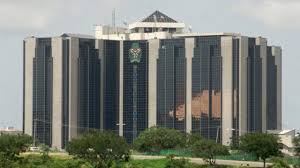Merchant banking plays a pivotal role in Nigeria’s financial ecosystem, offering specialised services such as corporate finance, underwriting, asset management, and advisory services to high-net-worth clients and corporate entities. Unlike commercial banks, merchant banks focus on non-retail clients, facilitating large-scale financing and capital market transactions. This guide distils the Central Bank of Nigeria’s (CBN) official regulations and procedures into clear, actionable steps, ensuring that aspiring merchant banks can navigate the licensing process with confidence.
1. Regulatory Framework
-
Governing Law: Banks and Other Financial Institutions Act (BOFIA) Cap. B3, Laws of the Federation of Nigeria 2004.
-
Issuing Authority: Governor of the Central Bank of Nigeria under powers conferred by BOFIA Section 57(1).
-
Key Regulation: CBN Scope, Conditions & Minimum Standards for Merchant Banks Regulations 2010.
2. What Is a Merchant Bank?
A merchant bank in Nigeria is a financial institution licensed to:
-
Take large-value deposits (minimum tranche of ₦100 million).
-
Provide finance and credit to non-retail clients.
-
Underwrite and issue securities, and coordinate capital market transactions.
-
Offer advisory, treasury management, asset management, and other bespoke financial services.
3. Eligibility Criteria & Minimum Standards
| Requirement | Detail |
|---|---|
| Minimum Paid-up Share Capital | ₦15 billion (or higher as prescribed by CBN) |
| Capital Adequacy & Liquidity | Compliance with CBN’s prudential guidelines |
| Corporate Governance | Adherence to CBN and NFSSCA governance standards |
| Internal Control & Risk Management | Frameworks to identify, monitor & report risks |
| Accounting Standards | IFRS-compliant financial reporting |
4. Permitted & Prohibited Activities
Permitted Activities include:
-
Deposit-taking (₦100 million minimum per tranche)
-
Corporate finance & credit facilities
-
Foreign exchange dealings
-
Underwriting & issuing securities
-
Advisory & consultancy services
-
Asset & treasury management
-
Proprietary trading & custodial services
Prohibited Activities include:
-
Retail banking (loans to individuals)
-
Checking account services
-
Insurance underwriting services
-
Holding equity interests beyond six months in IPOs
5. Three-Stage Licensing Process
-
Approval-In-Principle (AIP)
-
Application Addressed To: Director, Banking Supervision Department, CBN, PMB 0187, Garki, Abuja.
-
Key Documents:
-
Non-refundable application fee: ₦500,000
-
Feasibility report/business plan
-
Evidence of deposit of capital: ₦15 billion in escrow
-
Shareholders’ bio-data, resumes, source of funds
-
Memorandum & Articles of Association draft
-
Organisational structure, IT & staffing plans
-
-
-
Grant of Final License (Within 6 months of AIP)
-
Non-refundable licensing fee: ₦5,000,000
-
Submission of:
-
Certified copies: Certificate of Incorporation, MEMART, Status Report, Forms CO2 & CO7
-
Evidence of Head Office premises & facilities
-
Security, IT infrastructure, bullion lorries, etc.
-
-
-
Pre-Commencement Requirements
-
Notification of readiness to commence operations
-
Documents:
-
Clearing House admission evidence
-
Share certificates & register
-
Draft opening statement of affairs
-
Insurance policies (CIT, vault, etc.)
-
Security & operational manuals
-
-
6. Detailed Step-By-Step Guide
-
Pre-Application Preparation
-
Conduct market research, draft feasibility study
-
Assemble promoters with proven “fitness & properness”
-
Prepare detailed business plan & financial projections
-
Secure escrow deposit of ₦15 billion
-
-
Submission of AIP Application
-
Address cover letter to CBN Director, Banking Supervision
-
Attach all required documents & pay ₦500,000 fee
-
Await CBN’s 60-day review period for AIP decision
-
-
CBN Review & AIP Grant
-
CBN conducts background checks (SEC, NDIC, NAICOM, CRMS)
-
CBN may request additional information or clarifications
-
Upon satisfaction, AIP issued with conditions & timelines
-
-
Final License Application
-
Within six months, submit final documents & ₦5 million fee
-
CBN examines compliance with AIP conditions
-
License issued upon full satisfaction
-
-
Pre-Commencement & Commencement
-
Notify CBN in writing of operational readiness
-
Fulfill ICT, security and clearing house requirements
-
Receive “No Objection” to begin operations
-
7. Costs Breakdown
| Item | Amount (₦) | When |
|---|---|---|
| Application Fee | 500,000 | AIP Submission |
| Escrow Deposit (Capital) | 15,000,000,000 | AIP Submission |
| Licensing Fee | 5,000,000 | Final License Submission |
| Professional/Legal Advisory | 2,000,000+ | Throughout process |
8. Timeline & Best Practices
-
AIP Review: 60–90 days
-
Final License Grant: 30–60 days after complete submission
-
Pre-Commencement Clearance: 2–4 weeks
-
Total Duration: 4–8 months
-
Tip: Engage experienced legal and compliance consultants early to ensure swift approvals.
9. Common Misconceptions
-
“Retail banking is allowed.” × Merchant banks cannot grant retail loans or offer checking accounts.
-
“Paid-up capital can be borrowed from banks.” × Any debt financing must be at least 5-year tenor and non-bank sourced.
-
“AIP holders can immediately commence operations.” × Operations begin only after final license and pre-commencement clearances.
10. Frequently Asked Questions
Q1: Can foreign investors participate?
A: Yes, but not through offshore/tax-haven entities; individual and corporate investors must demonstrate fitness and properness.
Q2: What happens if AIP lapses?
A: Failure to obtain a final license within 6 months requires a fresh AIP application.
Q3: Are there annual reporting requirements?
A: Yes, merchant banks must submit quarterly and annual prudential reports, an independent control report by Jan 31 each year.
Q4: Can the CBN adjust capital requirements?
A: Yes, the CBN may revise minimum capital from time to time in line with systemic risk assessments.
Q5: Is the licensing fee refundable?
A: No. Both application (₦500k) and licensing (₦5m) fees are strictly non-refundable.
This guide, anchored entirely on CBN’s official regulations and circulars, equips you with every detail; from statutory standards and fee schedules to step-by-step procedures and key timelines, positioning your application for a seamless merchant banking license process in Nigeria. Ensure strict adherence to each requirement, engage reputable advisors, and maintain open communication with the CBN to secure your license and become a pillar of Nigeria’s financial services landscape.


